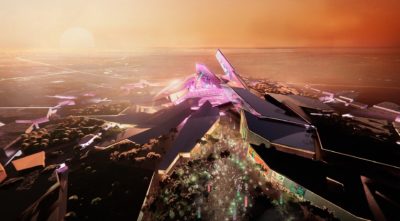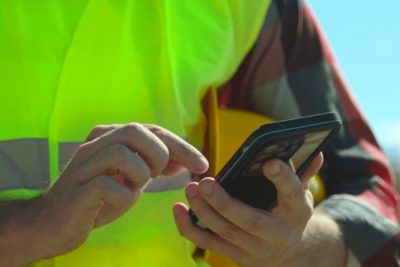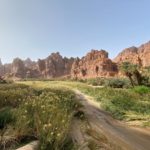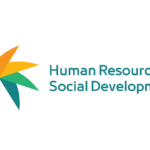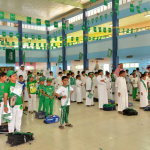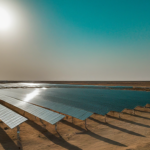
“I think it’s my job, and others’ jobs, to make sure this super-cycle doesn’t happen.”
–Prince Abdulaziz Bin Salman, Saudi Energy Minister, speaking at the Robin Hood Investors Conference regarding his concern about a lack of new investment in energy exploration. [Bloomberg]

“I think it’s my job, and others’ jobs, to make sure this super-cycle doesn’t happen.”
-Prince Abdulaziz bin Salman, Saudi Arabia’s Minister of Energy, in comments to the Robin Hood Investors Conference on Wednesday. Prince Abdulaziz said that his job is to prevent such a supercycle, warning that it could be triggered by a lack of new investments in exploration.

“The global environment has been supportive of healthy equity markets – both frontier and emerging markets this year – and within that Mena markets, have actually demonstrated some of the most exceptional returns. The regional index [is] up by over 20 per cent barely halfway into the year.”
-Bassel Khatoun, managing director of the Franklin Templeton Emerging Markets Equity group, expects a strong recovery in corporate earnings in Mena markets this year with earnings expected to grow 71% compared with 31% contraction in 2020. [The National]

“The journey from a commodities-led economy to a diversified economy is one of intelligent urbanisation. If you want to host an economy led by services, innovation, experience and enterprise you need successful vibrant cities.”
-Greg Clark, group advisor for future cities and new industries at HSBC, commenting on Saudi Arabia’s plans to grow Riyadh into a leading investment destination. [Investment Monitor]

“There’s only one Diriyah. We’re the first born, we’re the favorite son. My fellow CEOs can come on the show and say, ‘No, we’re great.’ They’re all great, we love them, but there’s only one Diriyah…It is to Saudi Arabia what the Acropolis is to the Greeks, what the Colosseum is to Rome, what Machu Picchu is to Peruvians.”
-Jerry Inzerillo, CEO of the Diriyah Gate Development Authority, discussing the project, how it has expanded and MBS’ keen interest in it. [Arab News]

“It is important for me that women in the Middle East and Muslim women understand that their face is who they are. But all the scripts I get about Muslim and Arab women [imply that they are] all victims and sad. We are very sassy. We are very strong, so don’t take us for granted.”
–Haifaa al-Mansour, Saudi Arabian filmmaker discussing cinema and the arts on the occasion of her most recent film, “The Perfect Candidate.” [Nikkei Asia]

“This partnership with Zapata is KAUST’s first use case with quantum computing and is essential to building our capacity in this space. This partnership could also open the door to finding solutions to other challenges in the Kingdom and the Middle East.”
-KAUST vice president for innovation and economic development, Kevin Cullen, discussing the university’s partnership with U.S.-based software company Zapata as part of an effort to become a regional leader in quantum technologies and create fuel-efficient airplanes. [ITP Net]

“They [the regulations] are not bank-led, they are more fintech-led, which means that fintechs can operate in isolation from banks, so they don’t need to be partnered with banks, they can really operate freely. That’s a major move that doesn’t happen with a lot of regulators around the region.”
–Maher Loubieh, the chief strategy officer at Riyadh-based Hala, discussing the growth of fintech in Saudi Arabia. Nesma Abdel Azim takes a close look at the fintech scene in the Kingdom, its successes, and challenges. [Wamda]

“Midway between camp and the seashore lies a barren blazing waste, distinguished from other barren blazing wastes by a faint hint of soil caught in a great depression among the brown mushroom hills and sheltered there from the claws of the shemaal…The terms ‘fairway’ and ‘rough’ imply a distinction that is theoretical only. Fairways lie between two rows of stakes but possess nearly the same number of rocky outcrops, sand dunes and gravel banks as the rough. ”
–Philip McConnell, Arabia American Oil Company (Aramco) Chief Petroleum Engineer, describing one of the earliest ‘golf courses’ in Saudi Arabia in 1942. Writing for Golf Course Architecture, Toby Ingleton provides a fascinating history of the growth of golf in the Kingdom. [Golf Course Architecture]

“From a broader perspective, what will be more interesting is whether the region as a whole looks to extend that corporate tax to other perhaps smaller foreign-owned companies or companies that have some foreign ownership. That is something they will have to manage quite carefully because there is very much a push to attract more FDI into the region and so they won’t want to jeopardize that by becoming too aggressive on corporate taxes.”
–Khatija Haque, Emirates NBD chief economist, commenting on the G7’s recent support for global minimum corporate tax and it’s potential impact on GCC states. [Arab News]
